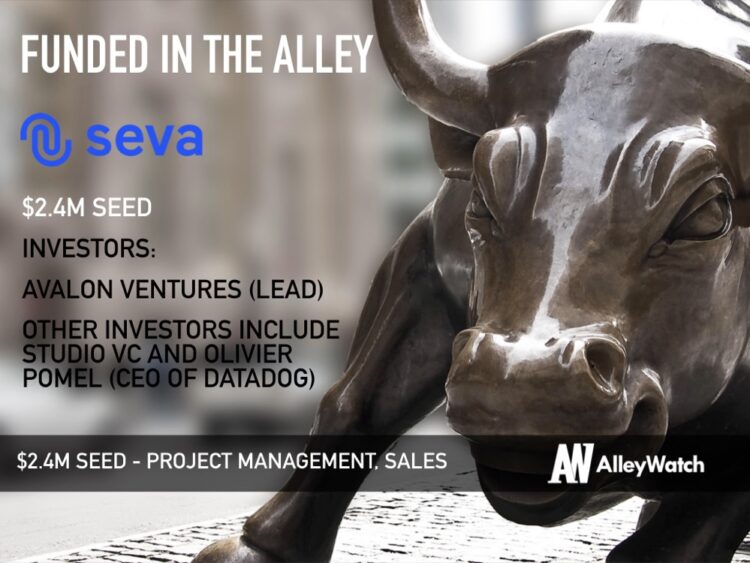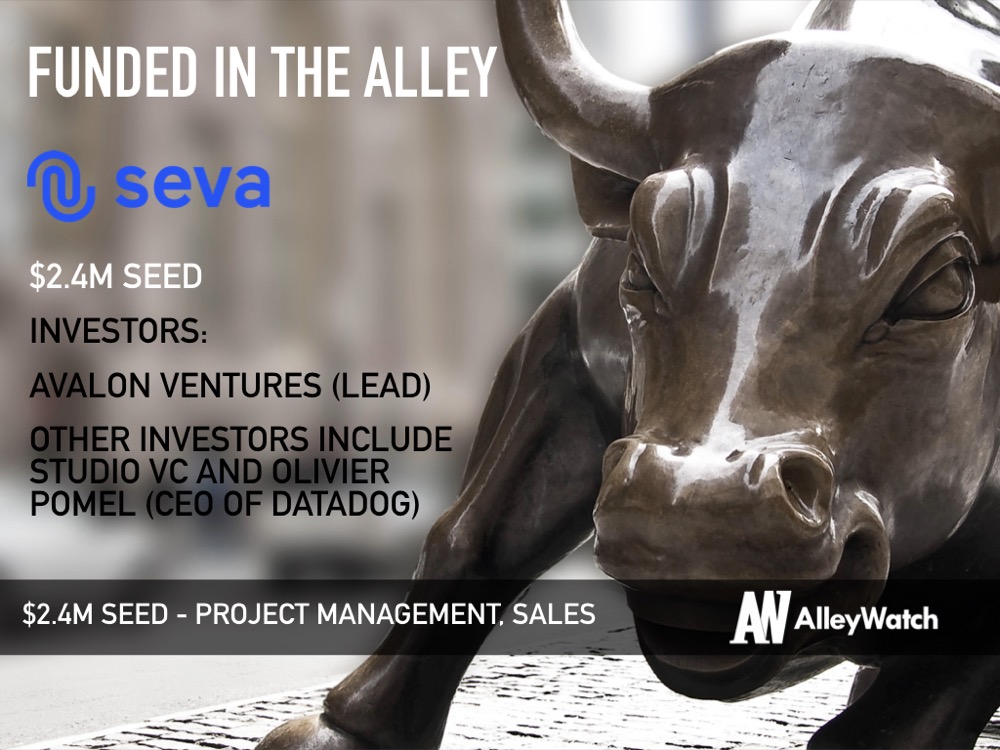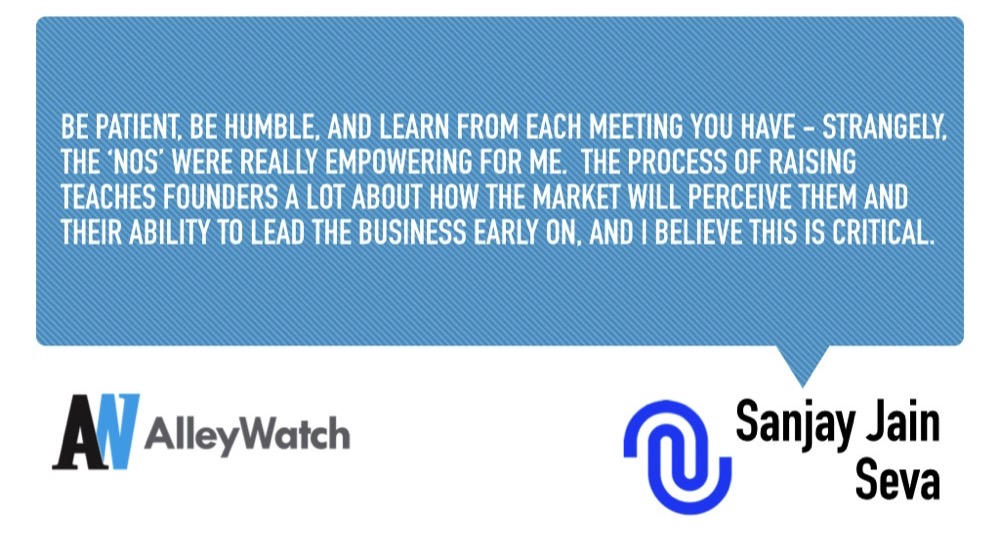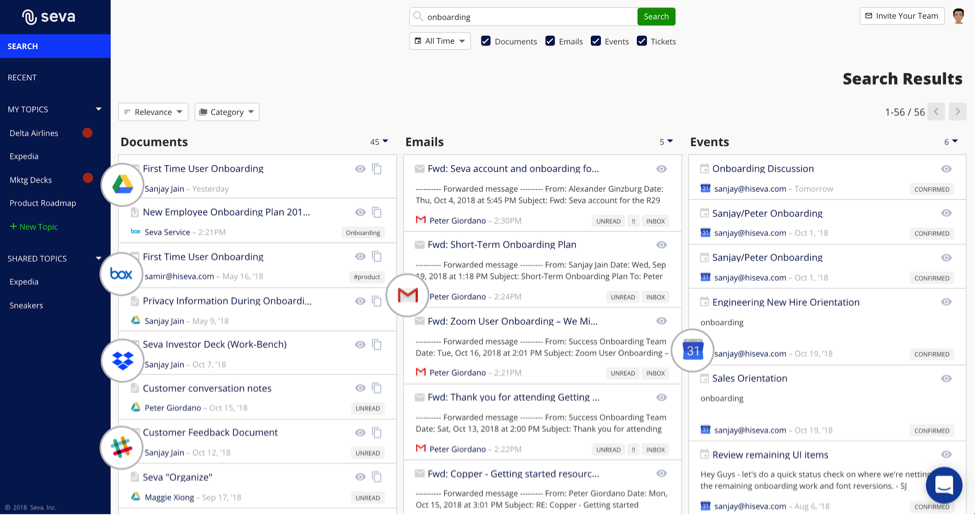Nominations are now open for AlleyWatch’s 2019 NYC Tech Influencers feature. Know someone amazing who belongs on this list? Nominate them today here. Nominations open until 12/15.
As we become more and more reliant on technology at work, it has created fragmentation. The multitude of SaaS platforms the average relies on to optimize his or her work function also means that information is often siloed within a particular application. Seva understands this and this startup created a knowledge management and search platform to unify the search experience across Gmail, Google Calendar, Google Drive, Box, Dropbox, Slack, and many more SaaS platform. Now teams can find information faster than ever. The company is initially focused on application in the customer success and sales realms but its powerful platform has the potential to be used in a variety of use cases across the enterprise.
AlleyWatch spoke with CEO Sanjay Jain about creating the solution that is putting information act your fingertips, seamlessly and quickly.
Who were your investors and how much did you raise?
We raised $2.4M in Seed financing. Our lead investor is Avalon Ventures. Other investors include Studio VC and Datadog CEO and cofounder Olivier Pomel.
Tell us about the product or service that Seva offers.
Seva is a knowledge management and search platform for the modern knowledge worker. By unifying search experiences across Gmail, Google Calendar, Google Drive, Box, Dropbox, Slack, and more we give teams a better way to discover the information they need at work, when and where they need it most.
What inspired you to start Seva?
I’ve been CTO at companies of varying sizes and stages over the last 10 years and it’s been incredible to see how a growing reliance on cloud applications has really hindered our ability to self-serve relevant information. Whether it’s as simple as finding the holiday calendar or making sure client-facing teams have the same, accurate 360° views of their customer, employees need a better way to manage information at work.
How is Seva different?
We are taking a somewhat contrarian approach to information discovery, focused heavily on design and usability. Our goal is to obfuscate the complexity of search technology and to make the experience from onboarding to usage – seamless, simple, and soulful.
What market does Seva target and how big is it?
While the beneficiaries of great search technology are far and wide, our approach will be to target audiences for whom information discovery and management is an under-addressed pain point. To that end, we are initially targeting Sales and Customer Success teams, notably at high-tech companies, as our early adopters. Our product can benefit any modern knowledge worker who works across multiple SaaS applications to get work done.
What’s your business model?
While we are currently free in Beta we anticipate that our platform will be monetized on a platform MRR model.
What was the funding process like?
I’ve raised before so the process was not entirely new to me before. What was interesting to me was the diversity in investment thesis that we see among VC in NYC today.
I’ve raised before so the process was not entirely new to me before. What was interesting to me was the diversity in investment thesis that we see among VC in NYC today.
What are the biggest challenges that you faced while raising capital?
I believe that we are reimagining a category that is not typically associated with success. Convincing potential investors that NOW is the right time to try again was probably the largest challenge.
What factors about your business led your investors to write the check?
Over the last year we’ve seen lots of recognition around the problem of information fragmentation and a resurgence of companies trying to tackle this in bold new ways. The creation of this “wave” really helped validate the opportunity we are going after.
What are the milestones you plan to achieve in the next six months?
Our 6-month milestone is to achieve a degree of product/market fit and early traction by working closely with early pilot customers to ensure we are solving real pain, at scale.
What advice can you offer companies in New York that do not have a fresh injection of capital in the bank?
Be patient, be humble, and learn from each meeting you have – strangely, the ‘nos’ were really empowering for me. The process of raising teaches founders a lot about how the market will perceive them and their ability to lead the business early on, and I believe this is critical.
Where do you see the company going now over the near term?
Like many tech companies here in NYC, we’re finding it challenging to recruit in engineering. We have a laser focus at the moment on finding the right fit of engineers for our business. We are also hoping to end Q1 with a handful of referenceable pilot customers.
What’s your favorite restaurant in NYC?
St. Anselm in Brooklyn.






